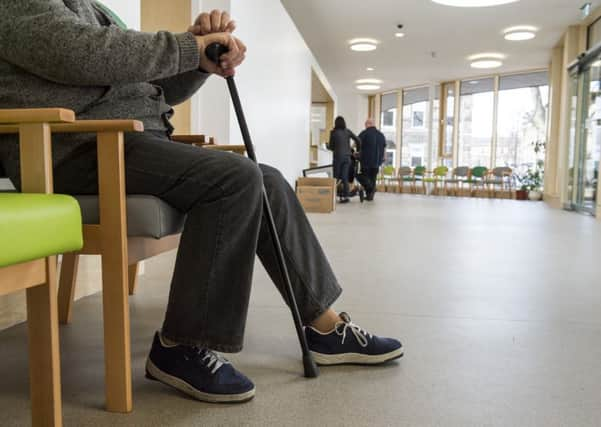Lizzy Buchan: New funding is welcome but GP recruitment is still an issue


Doctors’ leaders have been furiously calling for the boost for months as Scotland moves closer to the tipping point of a full on GP crisis.
Family doctors are the gatekeepers of the NHS and deal with the majority of patients passing through the health service.
Advertisement
Hide AdAdvertisement
Hide AdYet primary care in Scotland only receives around 8 per cent of the NHS budget.
With the emphasis on delivering care at home or in the community increasing, their role is becoming more important than ever.
The extra £500 million by 2021 announced by the First Minister could transform primary care, although where this cash will come from, and what other services may face cuts, is another issue entirely.
Another question to ask is where the GPs will come from. Just days after Nicola Sturgeon’s funding announcement, it became clear that a high-profile drive to recruit GPs had yielded poor results.
Only 37 junior doctors have signed up to train to be GPs, despite £20,000 “golden handshakes” for trainees who opt to work in remote or rural areas.
Practices across Scotland are restricting their patient lists and the Royal College of GPs believes there could be a shortfall of nearly 900 GPs by 2020.
Many non-medics question why there are such problems recruiting GPs, as surely they are more than adequately paid?
But it seems that the problem is workload and a general sense that being a GP is not a desirable career choice, which is desperately sad and often untrue.
Advertisement
Hide AdAdvertisement
Hide AdThe Scottish Government’s funding boost should give the profession real confidence that ministers are listening to their concerns.
In the meantime, difficult questions need to be asked about whether the traditional model for general practice is still the right one in 2016.
Fewer people seem to want to buy into a practice where they have responsibility for the running of the surgery, as well as caring for their patients.
Maybe some younger doctors do not want that kind of commitment in a society where people are more mobile than their parents were.
Some doctors have confided to me that they would rather get on with seeing patients.
They can then become salaried GPs, which works well for many, but it also destabilises a system that requires at least some family doctors to run these practices.
It is common for older GPs to work part-time because the work-life balance is better, but I have increasingly heard of younger GPs following suit because a full-time workload is just too much to bear.
Working part-time often means almost full-time hours because of all the paperwork and additional duties GPs have to take on.
Advertisement
Hide AdAdvertisement
Hide AdThis is not meant as a criticism of these choices, as everyone is entitled to work in a way that is best for their own health and their families.
But these issues need to be taken into account as the future of general practice is determined.
Doctors’ leaders are busy negotiating a new Scottish GP contract, which is due to begin in April next year.
Only time will tell what it contains but let us hope that GPs are given the chance to make bold choices about the future of their profession.